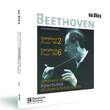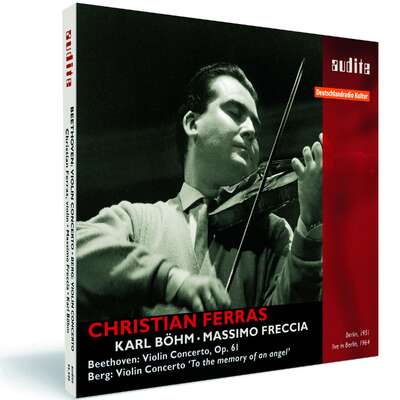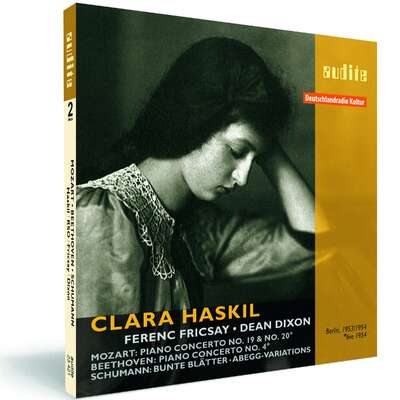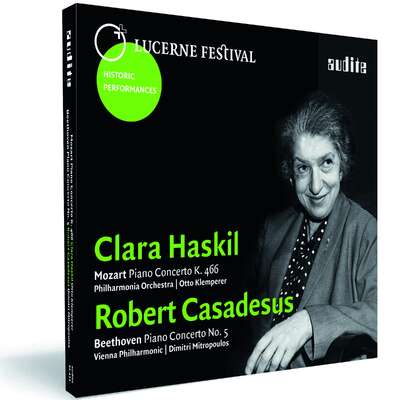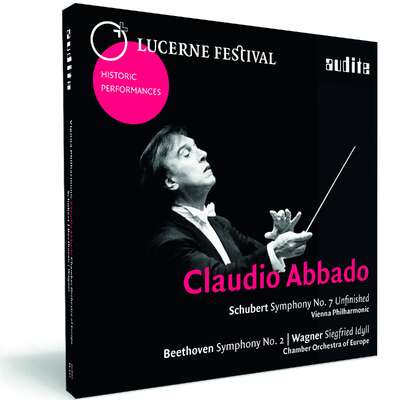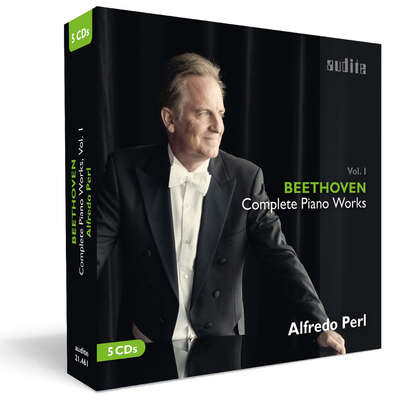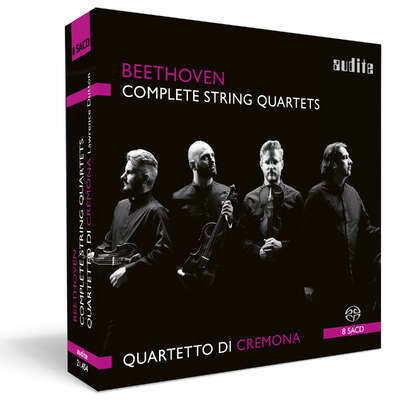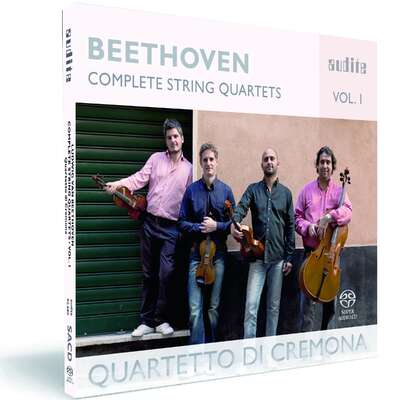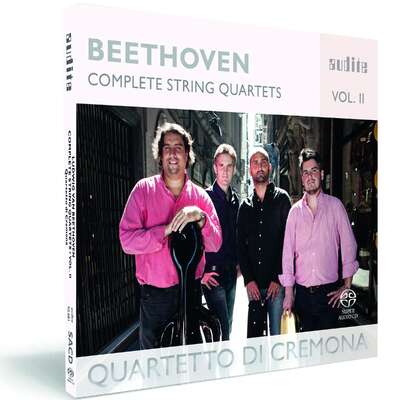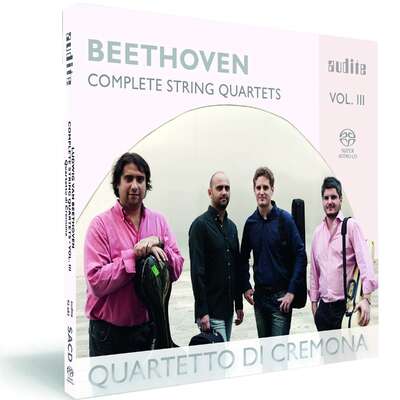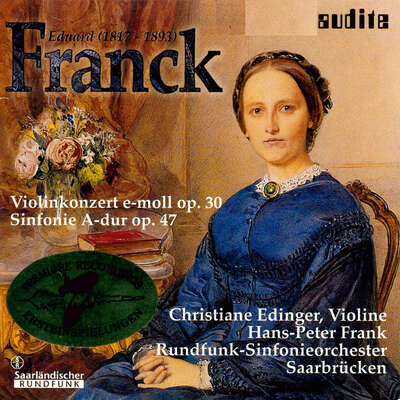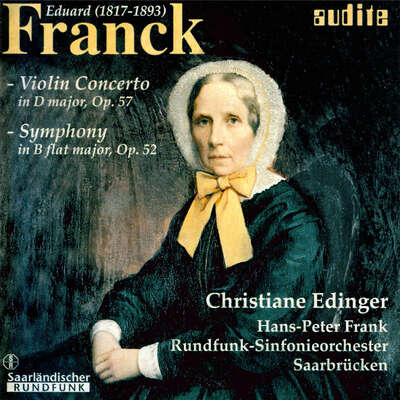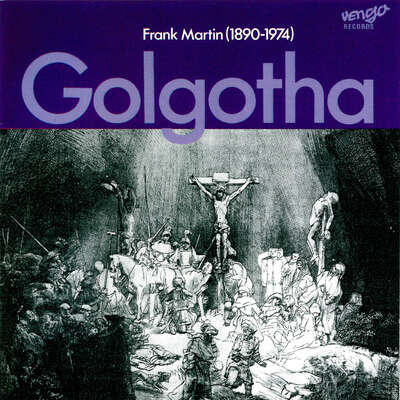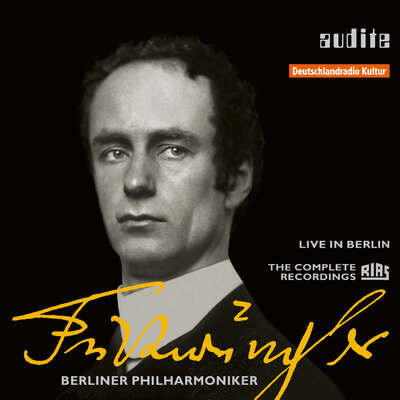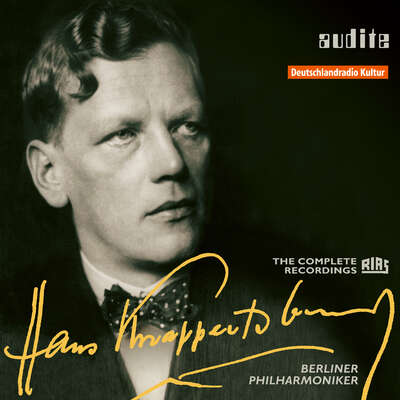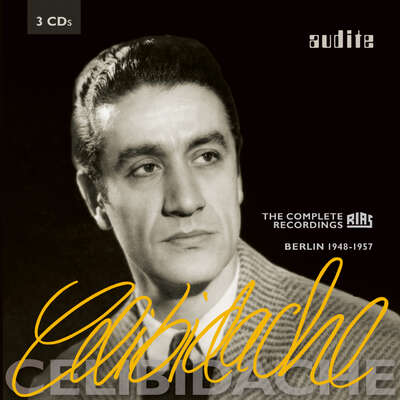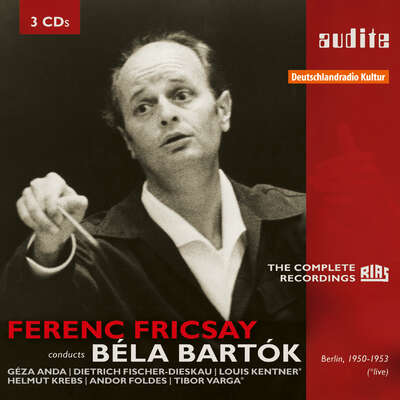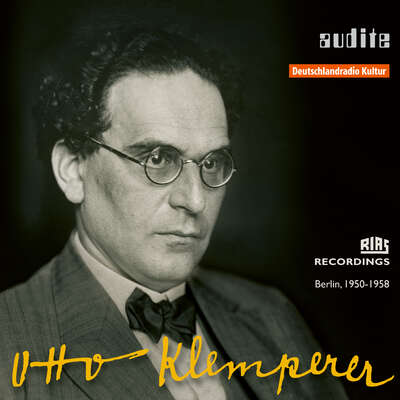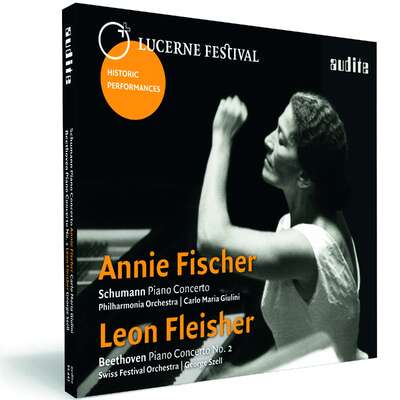
From the very beginning Beethoven considered himself to be an independent composer. As a young man, however, he could not avoid the influence of the great Viennese masters. Their works are so inextricably bound with the spirit of their age that Beethoven could not help but make use of their...more
"Audite a bien raison de poursuivre l'édition de documents relatifs à Rafael Kubelik." (www.classicstoday-france.com)
Details
| Ludwig van Beethoven: Symphony No. 2 & No. 6 ('Pastorale') | |
| article number: | 95.531 |
|---|---|
| EAN barcode: | 4022143955319 |
| price group: | BCB |
| release date: | 1. April 2005 |
| total time: | 0 min. |
Informationen
From the very beginning Beethoven considered himself to be an independent composer. As a young man, however, he could not avoid the influence of the great Viennese masters. Their works are so inextricably bound with the spirit of their age that Beethoven could not help but make use of their musical vocabulary. From the outset, nonetheless, he used these stylistic means to form a new musical language, a language immediately understood by all attentive listeners, who reacted either with enthusiasm or shock.
The composition of the D-major Symphony coincides with the period of Beethoven’s desperation over his impending deafness. But these emotional outbursts neither inhibited his creative energy nor are they reflected in the character of the works written during this time. A contemporary wrote about the Second Symphony as follows: “It is a strange, colossal work of a depth, power and artistic erudition that only few works have.” The unusually long introduction, the frequent dynamic changes in the Scherzo and the orchestral virtuosity of the Finale with its witty humour do indeed reflect this “artistic erudition.”
Beethoven emphasises different qualities in his Sixth Symphony. The title “Pastoral Symphony or Reminiscences of Country Life” and the poetic headings of the movements seem to indicate the programmatic character of the Symphony, yet Beethoven himself wrote that it was “more an expression of feelings than tone-painting,” thus clearly contradicting this initial impression. When delving more deeply into this music, it becomes apparent that it has its own life; the exact movement designations refer to general conditions which would rule out too many specific interpretations. The music can indeed be experienced without knowledge of these titles. The Pastoral Symphony originated in Beethoven’s profound communion with nature. Far from indulging in the nature-worship typical of the romantic period, he saw - in nature - the individual inextricably bound in the holy creation of the cosmos. As in nature, the alternation of tension and relaxation in Beethoven’s Sixth Symphony becomes a creative act.
This live recording of the Symphony No. 2 was made on 1 February 1971 at the Théâtre des Champs-Elysées; the Symphony No. 6 was recorded live on 31 March 1967 in the Herkulessaal of the Munich Residenz. The Bavarian Radio Symphony Orchestra performs under Rafael Kubelik on both concert recordings.
Reviews
www.listencarefully.co.uk | Monday, February 5th, 2007 | Christopher Breunig | February 5, 2007
The German label Audite began as a transfer series from Bavarian Radio archives of live performances conducted by Rafael Kubelik (with the MunichMehr lesen
The selling point of Kubelik’s DG cycle was that each symphony was with a different orchestra, the Sixth with the Orchestre de Paris rather disappointing. This one also starts unpromisingly slowly but Kubelik’s basic tempo is reached via rubato – indeed what makes both performances so engaging is the proportioning of tempi, although the very slow trio in 2(iii) might concern some listeners. This symphony is fiery, like the later RPO Beecham Second.
www.ClassicsToday.com | 01.11.2006 | Victor Carr | November 1, 2006
Rafael Kubelik's Beethoven is known primarily through his 1970s DeutscheMehr lesen
Diapason | Janvier 2006 | Rémy Louis | January 1, 2006
Les dates de ces concerts inédits nous ramènent à une époque de relatif consensus interprétatif, antérieure en tout cas à l'irruption des «Mehr lesen
La « Pastorale » revient à plus de classicisme. Mais la continuité de la pulsation, la flamme intérieure jamais démentie, la façon dont le quatuor porte la narration, la luminosité de la polyphonie, toutes ces caractéristiques vibrent avec une nécessité plus grande que dans l'enregistrement studio DG de 1973, avec l'Orchestre de Paris (dans le cadre de son intégrale Beethoven à neuf orchestres, cet ensemble est en cours de reparution en collection allemande « 2 CD »). Plus généralement, les deux exécutions soulignent la force de l'entente qui unit Kubelik à son orchestre bavarois – ressort important de la spontanéité humaniste de ces lectures –, et combien la présence du public peut susciter chez le grand chef une inspiration renouvelée, ce qu'a bien montré le cycle Mahler entrepris chez le même éditeur (d'autres Beethoven en concert existent sous sa baguette).
S'essayant à cette mise en perspective, il n'est pas question de suggérer de revenir à un passé qui serait forcément « supérieur » ; chaque époque, par grands cycles, produit ses propres vérités. Mais, par comparaison, ces documents mettent en lumière ce qui, chez certains « nouveaux beethovéniens », sépare parfois le discours affiché du passage à l'acte... alors qu'ils dénient parfois imprudemment la présence chez leurs grands aînés de ce qu'eux-mêmes tentent de réinventer.
CD Compact | n°192 (noviembre 2005) | Benjamín Fontvelia | November 1, 2005
Espléndidas versiones de ambas sinfonías, la Segunda interpretada enMehr lesen
Classica-Répertoire | juillet-août 2005 | Stéphane Friédérich | July 1, 2005
Nous retrouvons dans ce second volume Beethoven du label allemand, leMehr lesen
klassik.com | Juni 2005 | Midou Grossmann | June 20, 2005 | source: http://magazin.k... Tiefe, Kraft und Kunstgelehrsamkeit
Rafael Kubelik, Chefdirigent des Symphonie Orchesters des BayerischenMehr lesen
Pizzicato | 6/7-2005 | Rémy Franck | June 16, 2005
Dramatische und spannungsvolle Interpretationen von zwei Beethoven-Symphonien durch Rafael Kubelik, wunderbar im Wechsel von Spannung und Entspannung,Mehr lesen
Die Presse | Nr. 93/2005 | Wilhelm Sinkovicz | April 22, 2005
Kubeliks Beethoven. Dass das Bedeutende nicht in, sondern zwischen denMehr lesen
www.classicstodayfrance.com | Avril 2005 | Christophe Huss | April 1, 2005
Audite a bien raison de poursuivre l'édition de documents relatifs àMehr lesen
News
Espléndidas versiones de ambas sinfonías, la Segunda interpretada en París...
Rafael Kubelik's Beethoven is known primarily through his 1970s Deutsche...
The German label Audite began as a transfer series from Bavarian Radio archives...
Kubeliks Beethoven. Dass das Bedeutende nicht in, sondern zwischen den Zeilen...
Les dates de ces concerts inédits nous ramènent à une époque de relatif...
Nous retrouvons dans ce second volume Beethoven du label allemand, le Kubelik...
Dramatische und spannungsvolle Interpretationen von zwei Beethoven-Symphonien...
Audite a bien raison de poursuivre l'édition de documents relatifs à Rafael...
